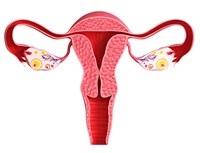The national rollout of the cervical cancer vaccine last year is a giant leap towards safeguarding future generations of women from this disease. However, until the effects of this vaccine start showing results several decades from now (the girls being vaccinated are between 9-12 but cervical cancer usually only occurs from the age of 40 onwards), many more South African women will die from the disease.
Prof Hannah Simonds, the head of the Division of Radiation Oncology of the Faculty of Medicine and Health Sciences at Stellenbosch University says there a variety of reasons why mortality rates will not immediately decrease. Firstly, despite the fact that the national screening programme offers three free Pap smears (at ages 30, 40 and 50) to scan for the precursors of cancer, not enough women utilise these services resulting in many cancer cases only being diagnosed in the later stages of the disease when it is harder to treat.
Secondly, around one in five South African women diagnosed with cervix cancer are also HIV positive. This co-infection with HIV and the human Papillomavirus (HPV) - which is responsible for most cervix cancers - is a cruel combination. "HPV infection in women with HIV is at least five times more likely to develop into cancer, while cervix cancer in HIV-positive women indicates the progression from HIV to AIDS, and is a so-called AIDS-defining illness," she says.
Even antiretroviral therapy (ART) does not appear to reduce the incidence of cervix cancer in women with HIV and data from oncology departments in the country showing that the large-scale rollout of ART has had no impact on the number of cervical cancer cases presenting at the six national oncology units in South Africa.
Problems in treating co-infected patients
According to Simonds, the management of cervical cancer in patients with HIV is also challenging. Despite the considerable portion of co-infected patients, all clinical trials on the treatment of cervix cancer (both local and international) exclude HIV-positive patients, leaving oncologists with untested treatment regimens for women with this comorbidity.
A suppressed immune system caused by HIV can lead to complications when high doses of radiotherapy and chemotherapy are required to treat cancer. Interactions between antiretroviral- and chemotherapy can cause additional side effects.
Important interventions
Simonds noted that a number of important interventions are necessary in order to provide high-quality care for co-infected women:
- Robust screening programmes must be made available to HIV-positive women to pick up the precursors to cancer and provide treatment before it develops. HIV clinics currently provide an initial pap smear with close follow up if any abnormalities are detected.
- Support of the national cancer registry and institution-based registries is essential to define clearly the trends of incidence and prevalence in the HIV-positive population in order for health services to plan an appropriate response to the problem.
- Locally relevant research is required to improve the understanding of the interplay between these two diseases and come up with guidelines on the best management of these cases. This will involve collaboration between gynaecology oncology surgeons, clinical oncologists and infectious diseases colleagues to define the most appropriate interventions based on previous international standard regimens used in the HIV-negative population.
"Finally, the importance of the social determinants of health cannot be overstated. Poverty, health-seeking behaviour, public health education, domestic violence and social stigma are just a few factors that contribute to the sustained prevalence of this disease in South Africa. Without resources to battle these issues we are unlikely to impact the numbers of patients presenting for care," concludes Simonds.



































